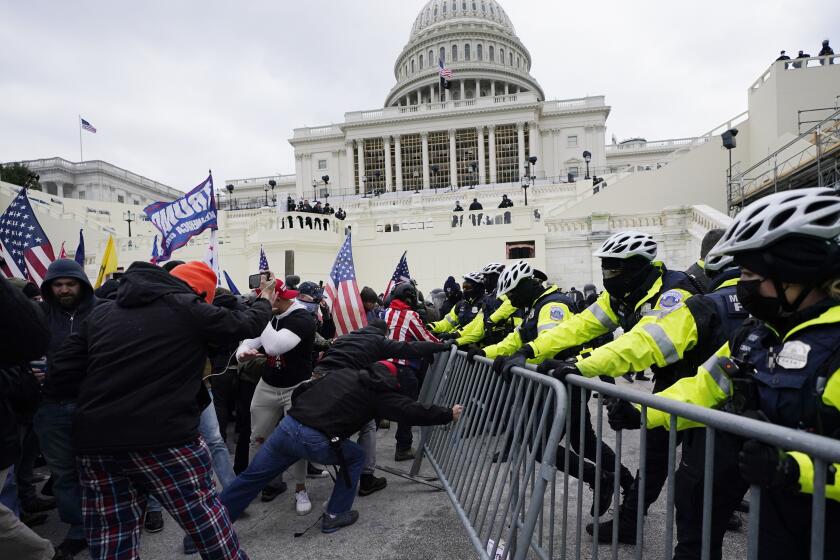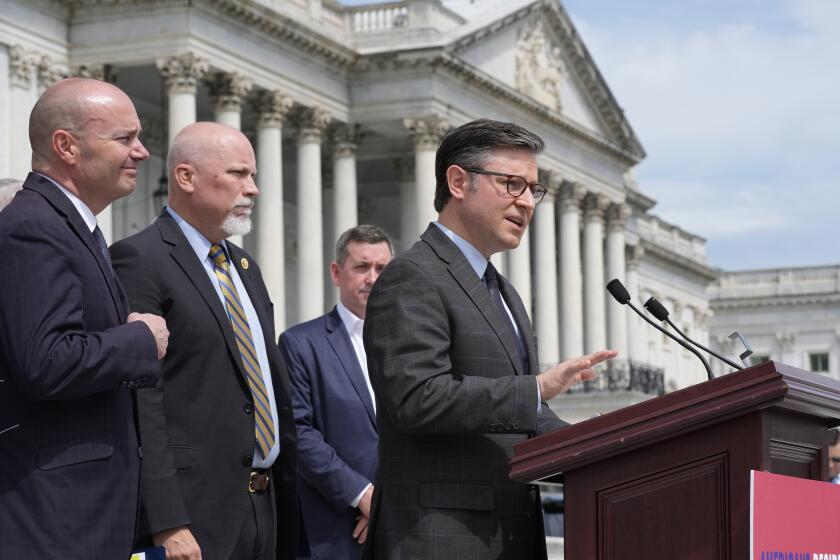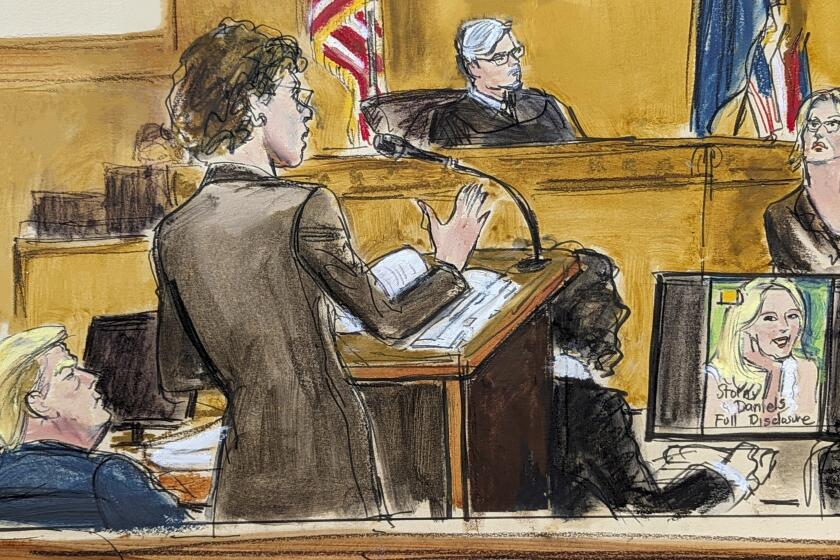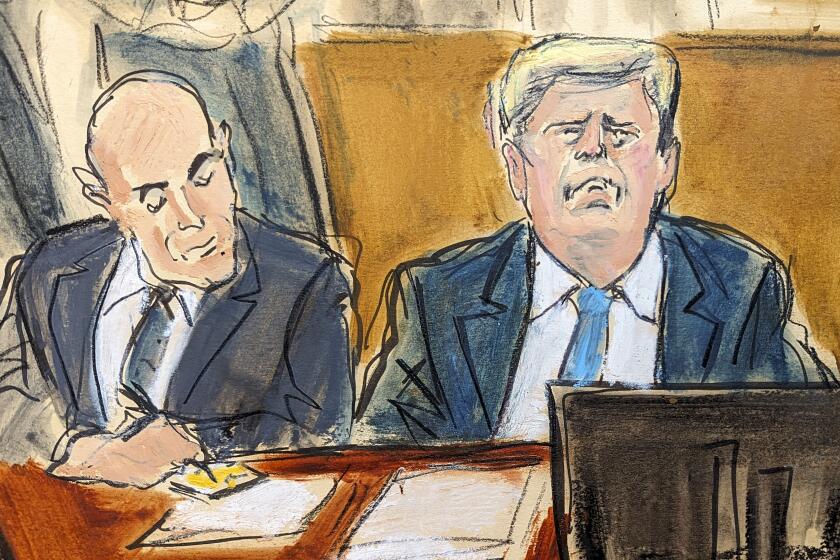PRIMARY: PUT THE NATION FIRST : Early Start Won’t Guarantee a Better Race : The Democrats already have front-loaded their contests, with little success. The California proposal would add to the confusion.
Moving California’s primary to the first Tuesday in March would be a step backward in the continuing evolution of the American electoral process.
Democratic Party officials say that such a change would allow the nominee to be chosen more quickly than in the past. They say that it would lead to a longer general election campaign.
Such logic implies that the primaries are less important than the general election. (The many voters who figuratively hold their noses while voting in November would surely take issue.) Having the primary process end quickly is a way for a party to gloss over its differences, but it leaves voters little time to sort through the candidates.
The logic also implies that fractious primaries harm Democratic candidates, that moving more quickly to the general election would help secure victory. Not so. After the primary process had concluded with his nomination, Michael Dukakis was ahead of George Bush by more than 10 points in most polls. It was in the general election campaign that Dukakis and his party met defeat.
The move to an earlier California primary exacerbates the already absurd process of front-loading these contests. In 1984, nine states held primaries or caucuses on one day. In 1988, the number increased to 20, giving us “Super Tuesday.” Looking ahead, there is every reason to believe that a bevy of other states will follow suit to move their primaries up to the first day allowed by the Democratic National Committee. Officials from several Southern states have already expressed interest in doing just that. Thus, there is the possibility that California could be lumped together with 20 or so other states for the first “Mega-Tuesday.” How does that increase the state’s influence? It doesn’t.
The likely result would be that only the most heavily financed candidates and a small handful with national name recognition could compete. A look at the 1988 campaign is helpful. Jesse Jackson needed little money; most voters already knew who he was. By the beginning of the election year, Dukakis had raised close to $11 million, more than double that of any other candidates. After finishing third in Iowa and scoring predictable victories in his native New England, Dukakis alone was able to purchase television ads in every Super Tuesday state. His fund-raisers had bought him a seat at the table. While this certainly diminishes the power of voters to sort the candidates, it may also hurt the party’s ability to compete in the general election. The fall campaign is publicly financed; fund-raising skills simply do not matter then.
The other possible outcome of Mega-Tuesday (as they say on airplanes, “in the very unlikely event of . . . “) is for a lesser-known candidate to score an upset victory in Iowa or New Hampshire. Such a showing might generate millions of dollars in free media. But the new, compressed system would give California voters only one week after the New Hampshire primary to make up their minds. That’s not time enough to make such a decision.
Many Super Tuesday voters in 1988 felt as if they had eaten the political equivalent of Chinese food. In 1992, California voters will feel the same way: Shortly after the primary, they’ll again be hungry for more information.
It’s a sad commentary that the party had no serious discussion of other options, such as regional primaries. Nor were there discussions to set rules for conduct for the next batch of candidates. Why not set guidelines about negative campaigning or specify the types of television ads that candidates can run? Both such efforts could be used to set a pattern that would make Republican attacks in the general election far less effective. Why not set up a system for a series of one-on-one Democratic debates during the primaries? Again, such a move would likely help the nominee in the general election.
Why not? Apparently, the party of Jefferson and Roosevelt is now afraid of real change. Those involved in setting the rules seem unwilling to focus on organizing a better race; they simply want to speak first. No wonder the perception exists that the Democrats will continue to offer a string of unimaginative candidates as their presidential nominees.
More to Read
Get the L.A. Times Politics newsletter
Deeply reported insights into legislation, politics and policy from Sacramento, Washington and beyond. In your inbox three times per week.
You may occasionally receive promotional content from the Los Angeles Times.






